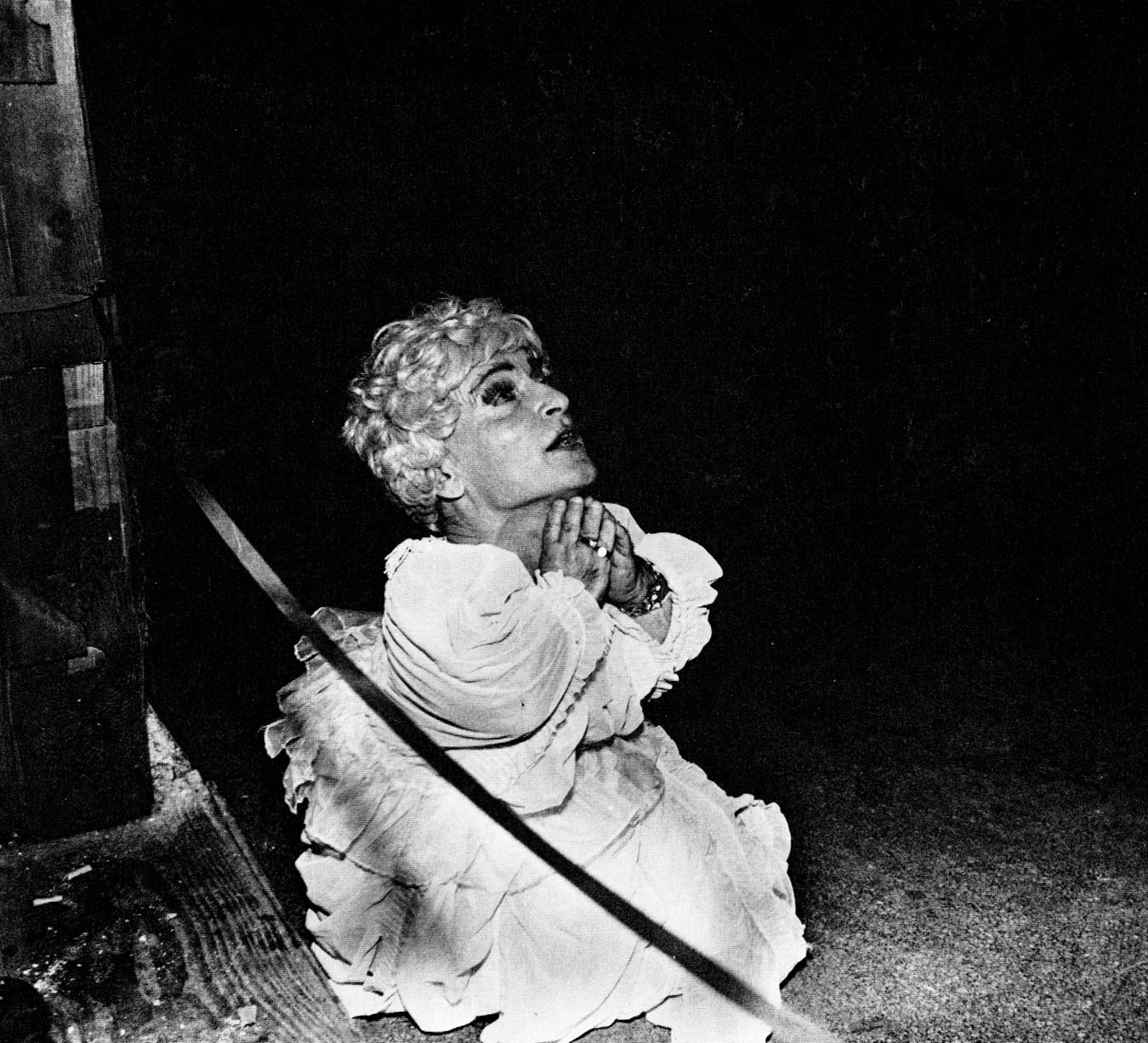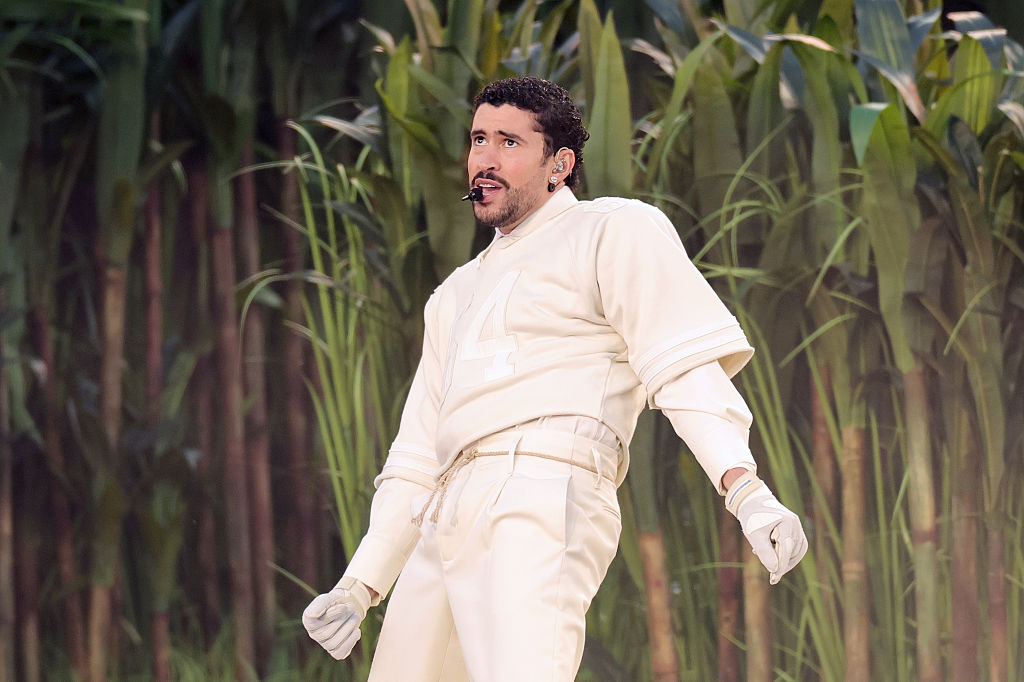Do you remember what a thrill it was to immerse yourself in Halcyon Digest? I remember it well -- or at least I think I do.
Deerhunter released the album 10 years ago today, and within a few weeks I was completely enthralled with it. Microcastle and Bradford Cox's magnetic, confrontational stage presence had made me a fan, but Halcyon Digest is what cemented Deerhunter's place within my personal pantheon of fiercely beloved artists. This was the most mesmerizing, invigorating indie record I'd heard in years -- one that swirled together decades of rock history into something visceral and ephemeral all at once, dark and mysterious yet plainly accessible, structurally adventurous while maintaining an unmistakable stylistic imprint. It was the sound of a band ascending to the peak of its powers. It became my favorite album of 2010.
So yes, I remember falling under Halcyon Digest's spell. I remember it fondly, and judging from the album's place of prominence within Deerhunter's discography, so do a lot of other people. But memories can be deceiving. As Cox explained upon Halcyon Digest's release, its title "is a reference to a collection of fond memories and even invented ones, like my friendship with Ricky Wilson or the fact that I live in an abandoned victorian autoharp factory." He continued: "The way that we write and rewrite and edit our memories to be a digest version of what we want to remember, and how that’s kind of sad." Oof. Guilty. By the album's own measure, then, the true test of Halcyon Digest's worth is whether it can still evoke such a breathless response all these years later.
It would almost be too perfect if such a vivid, surreal collection of rock songs made a profound impression and then retreated to the edge of consciousness, forever flickering in the recesses of our minds, never to be experienced again. Such is the case with concerts like the Deerhunter show I saw in Cleveland a few weeks after Halcyon Digest dropped. The further I get from the experience, the more it becomes a legend within my own personal history, a transcendent performance that elevated my love of Halcyon Digest to new heights. Was it really so euphoric? It's hard to say for sure. The album itself remains readily available, though, so I can confirm it still slaps.
Actually, at first, it cracks. Opening song "Earthquake" begins with an almost maddeningly slow electronic beat, a series of thudding depth charges and jarring digital snare hits with nothing but wide open silence in between. The vacuum soon fills with vaporous keyboards and a bleary Cox detailing a startled emergence from slumber: "Do you recall waking up/ On a dirty couch in the gray fog/ And the gray dog barking down the street?/ Columns shake your feet beneath your feet." He sounds like he's just waking up himself. But given the dreamy fog that hangs over most of the album, he could just as easily be heading the other direction, drifting off into the shadowy corners of his subconscious.
What follows is a mirage-like trip through Deerhunter's record collection in which the primitive early rock 'n' roll of the '50s and '60s blurs together with '80s and '90s indie guitar jams and a galaxy of great records in between, all of it glazed over with an ambient glimmer prevalent in Cox's solo work as Atlas Sound. Upon reviewing Halcyon Digest 10 years ago, my Stereogum predecessor Brandon Stosuy wisely observed that in contrast to Cox's colorful, boundary-pushing public profile, Deerhunter's music had always been more nostalgic than he lets on: "He does a great job reprocessing (and Digesting) the sounds of the past through his own collagist aesthetic." This was the least abrasive, most welcoming version of that aesthetic. Working with Merriweather Post Pavilion producer Ben H. Allen for the first time, the band softened its rangy and sometimes aggressive sonic outbursts just enough that they came across as pop of a sort without sacrificing their mystique.
The resulting music was intoxicating, like tapping into someone else's rose-colored recollection of the classics. Yet in keeping with his stated concept, Cox threaded these songs with depressing and sometimes disturbing imagery, be it a poor weeping child on the ragged and reverb-drenched "Don't Cry" or a human trafficking victim on the lush and all-consuming digital power ballad "Helicopter." Some of the brightest and catchiest moments are the most acerbic: Cox serving up sarcasm to an absentee parent on the woozy head rush "Memory Boy" and rolling his eyes at clueless industry people amidst the surprisingly Stonesy, sax-skronking "Coronado." And on the floaty, kaleidoscopic finale "He Would Have Laughed," Cox tenderly pays tribute to the late Jay Reatard: "In sweetness comes suffering," he sings, before lamenting, "Where did my friends go?"
Again and again he and his characters find themselves abandoned, by choice or by fate; even the happier moments are bittersweet, snapshots of bliss and passion tainted by confusion, alienation, and death. The delicate doo-wop pastiche "Basement Scene" chronicles the thrill of immersion in a teenage music community -- for realism's sake, Cox insisted on recording it in an actual basement and having engineer David Barbe's 14-year-old son Henry produce it -- but its protagonist is haunted by the knowledge that "my friends will not remember me." Gracefully gliding lead single "Revival," ostensibly about an intense Pentecostal church service, could just as easily be about a queer sexual encounter that ends messily. The barebones lullaby "Sailing" walks a fine line between solitude and loneliness. Cox's music had always documented the isolation that came with being gay and living with Marfan syndrome, but never had his turmoil been dressed up so prettily.
Considering how much pain and regret were brimming beneath the music's placid glow, it's fitting that the Halcyon Digest sessions were nearly derailed by head-butting between Cox and Allen, two men with strong and often contradictory perspectives. "We did not come to the project seeing eye to eye," Cox told Noisey years later. "I was like, 'I know what I’m doing,' and he was coming off the success of a lot of things and he had his ideas. I thought that he was enormously competent, but I wasn’t looking for an artistic collaborator at that point, so we did not get along."
Between Cox's comments and the sun-dappled psychedelia typical of Allen's discography, I get the sense that the producer was responsible for making this album so approachable while the band wanted to remain as weird and challenging as ever. That might be a misunderstanding, but it's clear that Cox views Halcyon Digest as a concession of sorts. In the same interview, he ranked the album near the bottom of Deerhunter's discography and griped about the cooler public response toward 2013's raw freakout Monomania and 2015's moody, idiosyncratic Fading Frontier (for which they again teamed with Allen, for what it's worth). "It's a perfect record," he said of Fading Frontier, decrying listeners' decreasing attention spans. "It should have been widely accepted. It should have won us new fans." Furthermore, "Monomania is the greatest album I’ve ever made and anybody that doesn’t like it has no idea what I’m about or what I’m doing. They’re simply avid fans of what’s called indie rock and think we're a notable indie rock band. I hate indie rock and never liked the term. I don't consider myself a participant in indie rock. I think it's a ghetto."
That said, Cox also revealed that Halcyon Digest contains his favorite Deerhunter track ever, and it's among the most classically "indie rock" songs in their catalog. It's also one Cox admittedly had nothing to do with. Deerhunter fans can always count on guitarist Lockett Pundt for one or two absolute bangers per album, be it Microcastle's graceful, hypnotic "Agoraphobia" or Fading Frontier's spaced-out epic "Ad Astra." On Halcyon Digest he served up a pair of anthems that have a lot to do with the album's vaunted standing in Deerhunter's catalog. My personal favorite is "Fountain Stairs," a tight little pop song that builds to a gorgeous bombardment in under three minutes, wielding its central lacerating guitar melody with a violent beauty. But the Pundt song that has become the people's choice is "Desire Lines," a spidery six-string epic that plays like Pixies writing a Sonic Youth song or vice versa.
Like the Microcastle classic "Nothing Ever Happens" before it, "Desire Lines" is one of those Deerhunter songs that works as a rejoinder to the notion that Deerhunter is just the Bradford Cox show. Over the course of six minutes, the whole band gets to show off -- Pundt, yes, with his array of riffs and soothing, understated vocals, but also drummer Moses Archuleta and the late bass maestro Josh Fauver, whose gradually intensifying lockstep groove elevates Pundt's beautiful tangle of guitars beyond the horizon and into the stratosphere. Halcyon Digest was the final album this lineup released together, and "Desire Lines" stands as a monument to their collective abilities.
Pundt's lyrics are about breaking free from the well-worn paths we sometimes end up on by default and charting your own course instead, a philosophy Deerhunter would adhere to in the ensuing decade. It's remarkable and respectable that they didn't just continue making albums like Halcyon Digest indefinitely, that they kept people guessing rather than settle into a crowd-pleasing rhythm at odds with the perverse, provocative impulse that animates so much of their finest work. Can you even imagine a version of Deerhunter that comfortably assimilated into the indie industrial complex? Still, every time one of Halcyon Digest's more straightforward climaxes bowls me over, I'm grateful that this band bothered to construct their own idealized composite of the past, even if only to call bullshit on it.






